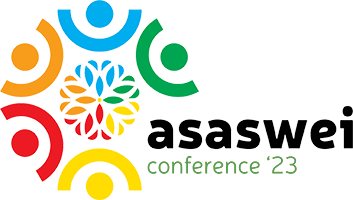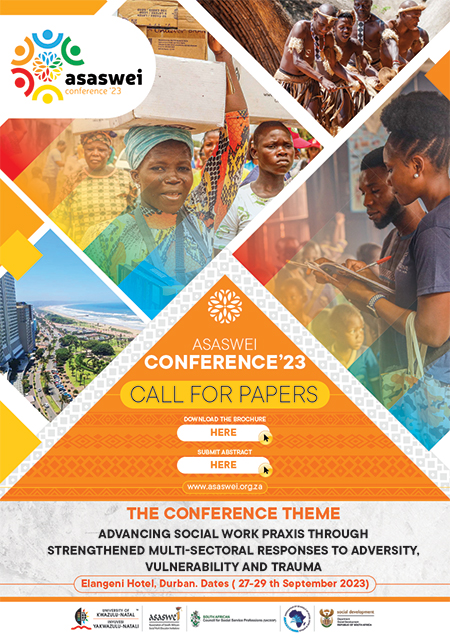The View page displays a submission's general information and data. Watch video
Submission information
Submission Number: 54
Submission ID: 54
Submission UUID: 5f4d4464-f106-4621-9e17-20fb93fa1fb1
Submission URI: /2023/abstracts
Created: Sat, 05/20/2023 - 21:07
Completed: Sat, 05/20/2023 - 21:11
Changed: Tue, 06/06/2023 - 13:11
Remote IP address: 105.226.7.131
Submitted by: Anonymous
Language: English
Is draft: No
Current page: Complete
Webform: Abstract
Presenters
Prof.
Harms-Smith
Linda
University of Pretoria
Linda Harms Smith is Associate Professor of Social Work at the University of Pretoria, South Africa, previously at Robert Gordon University, Scotland and until 2015, at the university of the Witwatersrand. Her scholarship and research focuses on Decoloniality, ‘race’ and anti-racism, radical social work, Fanonian practices, social moments and qualitative research. She is on the editorial board of Critical and Radical Social Work and on the Steering committee of Social Work Action Network (SWAN)
No
Abstract
TRANSFORMATIONAL AND EPISTEMIC DECOLONIALITY: CRITICAL CONSIDERATIONS
THEME 4: Quality management and enhancement of social services
SUB 4.4 Advancing Decolonial and Afrocentric education, research, and practice
Oral Presentation
A complete disruption is required to transform the materiality of coloniality and colonial dynamics of power, being and knowledge. Psycho-political violence through racist inferiorization and dehumanization is still ongoing in a world of capitalism, coloniality and patriarchy. Coloniality is evident in global relationships of economic and political domination and inequalities. The colonial matrix of power must be interpreted through an explicitly political, decolonial epistemology, for a politics of resistance, disruption, and refusal to emerge.
This paper explores ‘colonization of the mind as the destruction of history and subjugation of languages. It proposes: 1) understanding epistemic Eurocentrism as the ideological interests of the ruling classes; 2) embracing surrealism, creativity and imagination 3) exercising epistemic disobedience through Southern knowledges; 4) destabilizing colonial hierarchies; 5) refuting the characterisation of knowledge as indigenous; 6) subverting the colonial project of the University; and 7) accepting that there can be no real decoloniality without material transformation.
This paper explores ‘colonization of the mind as the destruction of history and subjugation of languages. It proposes: 1) understanding epistemic Eurocentrism as the ideological interests of the ruling classes; 2) embracing surrealism, creativity and imagination 3) exercising epistemic disobedience through Southern knowledges; 4) destabilizing colonial hierarchies; 5) refuting the characterisation of knowledge as indigenous; 6) subverting the colonial project of the University; and 7) accepting that there can be no real decoloniality without material transformation.
Reviewer ONE Feedback
{Empty}
{Empty}
{Empty}
Yes
Critical discussion and exploration
Accepted
Reviewer TWO Feedback
Prof
Roelf
Reyneke
Yes
Position paper and critical discussion
Accepted

